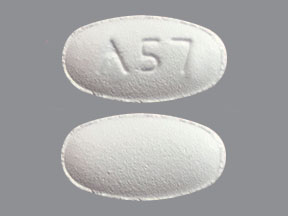
Coreg Coupons & Savings Card – Discount Prices from $13.04
Brand for: Carvedilol
My prescription
Edit
12.5MG, Carvedilol (180 Tablets)
Select pharmacy

CVS
$30.08
COUPON PRICE
Walmart
$13.04
COUPON PRICE
Albertsons
$18.77
COUPON PRICE
Walgreens
$21.82
COUPON PRICECoreg savings card
Show this card to your pharmacist
Walmart
$13.04
BIN
ID
PCN
GRP
019876
LHBF0F1774
CHIPPO
LHX
Powered by
More prescriptions for hypertension
More prescriptions for hypertension
Price history for Coreg (brand) & Carvedilol (generic)
180 Tablets, 12.5MG
Average retail price for Coreg
Average retail price for Carvedilol
Average SaveHealth price for Carvedilol
Our price history data is based on aggregated prescription data collected from participating pharmacies in America. Our prescription data updates daily to reflect the latest price changes. If you notice a missing data point, it means there wasn't sufficient data available to generate a monetary value for that date.
Over the last 12 months, the average discount price of Coreg is $17.75 using the SaveHealth savings card. That's an average savings of 97.90% on Coreg with our discount card.
*Retail prices are based on pharmacy claims data, and may not be accurate when we don't have enough claims.
Coreg (Carvedilol) dosage forms
Dosage Quantity Price from Per unit 3.125MG 1 Tablet $2.52 $2.52 3.125MG 30 Tablets $3.05 $0.10 3.125MG 60 Tablets $3.60 $0.06 3.125MG 90 Tablets $4.14 $0.05 3.125MG 100 Tablets $4.33 $0.04 3.125MG 120 Tablets $4.69 $0.04 3.125MG 180 Tablets $12.29 $0.07 3.125MG 500 Tablets $23.43 $0.05 3.125MG 1000 Tablets $31.85 $0.03 6.25MG 1 Tablet $2.52 $2.52
| Dosage | Quantity | Price from | Per unit |
|---|---|---|---|
| 3.125MG | 1 Tablet | $2.52 | $2.52 |
| 3.125MG | 30 Tablets | $3.05 | $0.10 |
| 3.125MG | 60 Tablets | $3.60 | $0.06 |
| 3.125MG | 90 Tablets | $4.14 | $0.05 |
| 3.125MG | 100 Tablets | $4.33 | $0.04 |
| 3.125MG | 120 Tablets | $4.69 | $0.04 |
| 3.125MG | 180 Tablets | $12.29 | $0.07 |
| 3.125MG | 500 Tablets | $23.43 | $0.05 |
| 3.125MG | 1000 Tablets | $31.85 | $0.03 |
| 6.25MG | 1 Tablet | $2.52 | $2.52 |
| 6.25MG | 30 Tablets | $3.10 | $0.10 |
| 6.25MG | 60 Tablets | $3.70 | $0.06 |
| 6.25MG | 90 Tablets | $4.30 | $0.05 |
| 6.25MG | 100 Tablets | $4.50 | $0.04 |
| 6.25MG | 120 Tablets | $4.90 | $0.04 |
| 6.25MG | 180 Tablets | $12.59 | $0.07 |
| 6.25MG | 500 Tablets | $24.31 | $0.05 |
| 6.25MG | 720 Tablets | $28.40 | $0.04 |
| 6.25MG | 1000 Tablets | $33.61 | $0.03 |
| 12.5MG | 180 Tablets | $13.04 | $0.07 |
| 12.5MG | 1 Tablet | $2.52 | $2.52 |
| 12.5MG | 30 Tablets | $3.17 | $0.11 |
| 12.5MG | 60 Tablets | $3.85 | $0.06 |
| 12.5MG | 90 Tablets | $4.52 | $0.05 |
| 12.5MG | 100 Tablets | $4.75 | $0.05 |
| 12.5MG | 120 Tablets | $5.20 | $0.04 |
| 12.5MG | 500 Tablets | $25.48 | $0.05 |
| 12.5MG | 720 Tablets | $30.08 | $0.04 |
| 12.5MG | 1000 Tablets | $35.95 | $0.04 |
| 25MG | 1 Tablet | $2.53 | $2.53 |
| 25MG | 10 Tablets | $2.81 | $0.28 |
| 25MG | 30 Tablets | $3.44 | $0.12 |
| 25MG | 60 Tablets | $4.38 | $0.07 |
| 25MG | 90 Tablets | $5.32 | $0.06 |
| 25MG | 100 Tablets | $5.63 | $0.06 |
| 25MG | 120 Tablets | $6.25 | $0.05 |
| 25MG | 180 Tablets | $14.63 | $0.08 |
| 25MG | 500 Tablets | $30.95 | $0.06 |
| 25MG | 720 Tablets | $37.97 | $0.05 |
| 25MG | 1000 Tablets | $46.90 | $0.05 |
| 25MG | 9000 Tablets | $287.30 | $0.03 |
What exactly does Coreg do?
Coreg, also known by its generic name carvedilol, is a medication that is primarily used to treat high blood pressure and heart failure. It works by blocking certain receptors in the heart and blood vessels, which helps to lower heart rate, reduce blood pressure, and improve blood flow. This can help decrease the risk of complications such as heart attacks and strokes. Additionally, Coreg is sometimes used to improve survival after a heart attack.
What is the most common side effect of carvedilol?
The most common side effect of carvedilol is dizziness. This can occur as the body adjusts to the medication, particularly when standing up quickly from a sitting or lying position.
Is Coreg the same as metoprolol?
Coreg (carvedilol) and metoprolol are not the same medication, although both are beta-blockers used to treat certain heart conditions. Coreg is a non-selective beta-blocker with additional alpha-blocking activity, while metoprolol is a selective beta-1 blocker. They may be prescribed for similar conditions, but they have different pharmacological properties and effects.
When should you not take Coreg?
Coreg, also known as carvedilol, should not be taken by individuals who have certain medical conditions. These include severe heart failure, asthma, or other serious breathing problems, a slow heart rate (bradycardia), or certain heart rhythm disorders. Additionally, it should be avoided in individuals with severe liver impairment. It is important to consult a healthcare provider before starting Coreg to ensure it is safe based on one's medical history and current medications.
Which 3 symptoms are adverse responses to treatment with carvedilol?
Three common adverse responses to treatment with carvedilol include dizziness, fatigue, and hypotension (low blood pressure).
